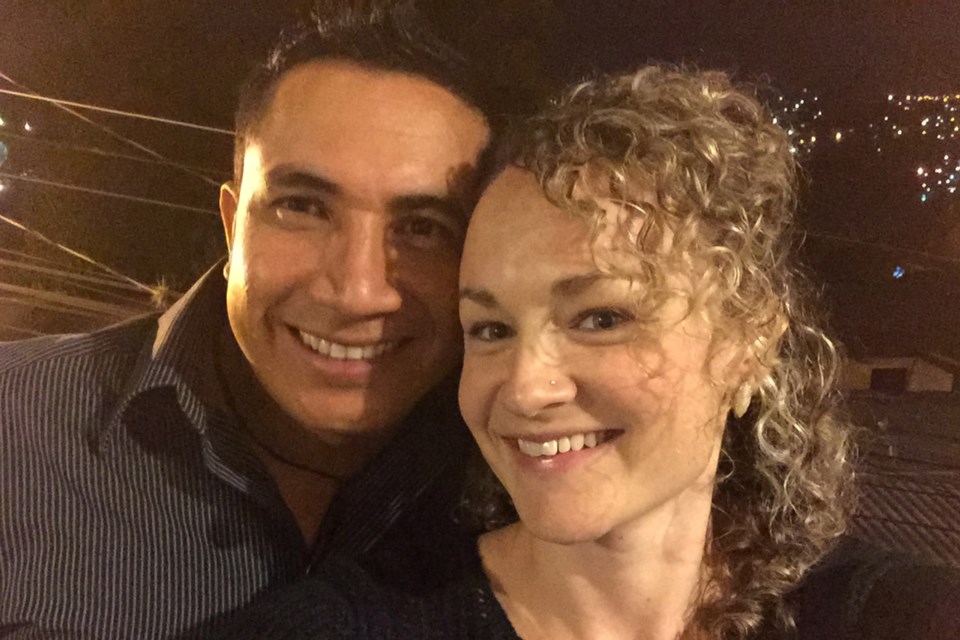The Spring family is celebrating today as a member of their family was released on bail from a maximum-security Honduran prison after more than 18 months in pre-trial detention.
Edwin Espinal was granted bail yesterday at his third bail hearing since being arrested.
He is the husband of Karen Spring, whose family is from Elmvale.
“It’s amazing,” said Janet Spring, Espinal’s mother-in-law. “He called and said he was driving, he was out, and he was free. He said it was just like a dream … he was just thrilled.”
Espinal was arrested on Jan. 19, 2018 after an anonymous social media campaign accused him and others of having ties to criminal organizations and drug cartels.
At his pre-trial hearing, Espinal was accused of many charges - including terrorism.
Espinal was a known member of the National People’s Resistance Front and has participated in protests against government corruption.
In fact, reports out of Honduras claim nearly half the country is participating in protests calling for the release of political prisoners and the resignation of the current president of Honduras, Juan Orlando Hernández.
“We’ve always felt all along it was totally political,” said Janet Spring. “I’m still shocked they let him out.”
A report by the United Nations High Commissioner’s office made specific note of the dangers faced by human rights defenders and journalists in Honduras.
“Attacks, criminalization, harassment, and smear campaigns against human rights defenders, as well as burglaries of their offices and private residences, remained of deep concern,” states the report. “The vast majority of human rights defenders in Honduras are not able to operate in a safe and enabling environment.”
The prison where he was held - La Tolva - is a maximum security facility. Amnesty International called the conditions at La Tolva dire and inhumane. In a report, the organization said the prison was overcrowded and prisoners faced serious physical and psychological health risks.
Espinal contracted an ear infection while in prison and was not provided medical care. The infection progressed and he remains deaf in one ear as a result.
Janet Spring, who visited the prison several times, said Espinal was sharing a cell with 19 other people. They were given limited amounts of water twice a day to be used for drinking, laundry, and flushing the one toilet they all shared. Sometimes they wouldn’t get any water.
Sunlight was limited to a couple of hours per month.
The UN high commissioners' report singled out La Tolva as the one prison where tuberculosis outbreaks have been the most severe and stated the lack of access to outdoors contributed to the spread of the disease.
She told CollingwoodToday last month she didn’t see a way Espinal would be released and given a fair trial short of the fall of the Honduras government.
She had been part of two large delegations to Honduras and made trips on her own.
She visited the United Nations High Commissioners office, the American and Canadian embassies in Honduras, and applied pressure to Canadian and American officials based in North America in an effort to bring attention to Espinal’s case and get him released from prison.
Honduras has been embattled in political upheaval since a military coup in 2009.
Recently, an election fraught with allegations of corruption spurred a mass of protests as hundreds of thousands of Hondurans marched in protest of the government. A state of emergency was declared and the military and police dispersed protesters and imposed a curfew. Several protesters were killed and thousands arrested.
Espinal was arrested and jailed with about 25 other people considered to be political prisoners. Many have since been released.
Raul Alvarez remained at La Tolva with Espinal. The courts have grouped their cases together. Alvarez was also granted bail and will be released. It’s unclear if he has been able to leave La Tolva yet.
Espinal will still face a trial, and Spring said it’s important to keep up the pressure to push for a fair trial.
A group formed after Espinal was arrested, called the Simcoe County Honduras Rights Monitor. They are gathering today to celebrate his release.



